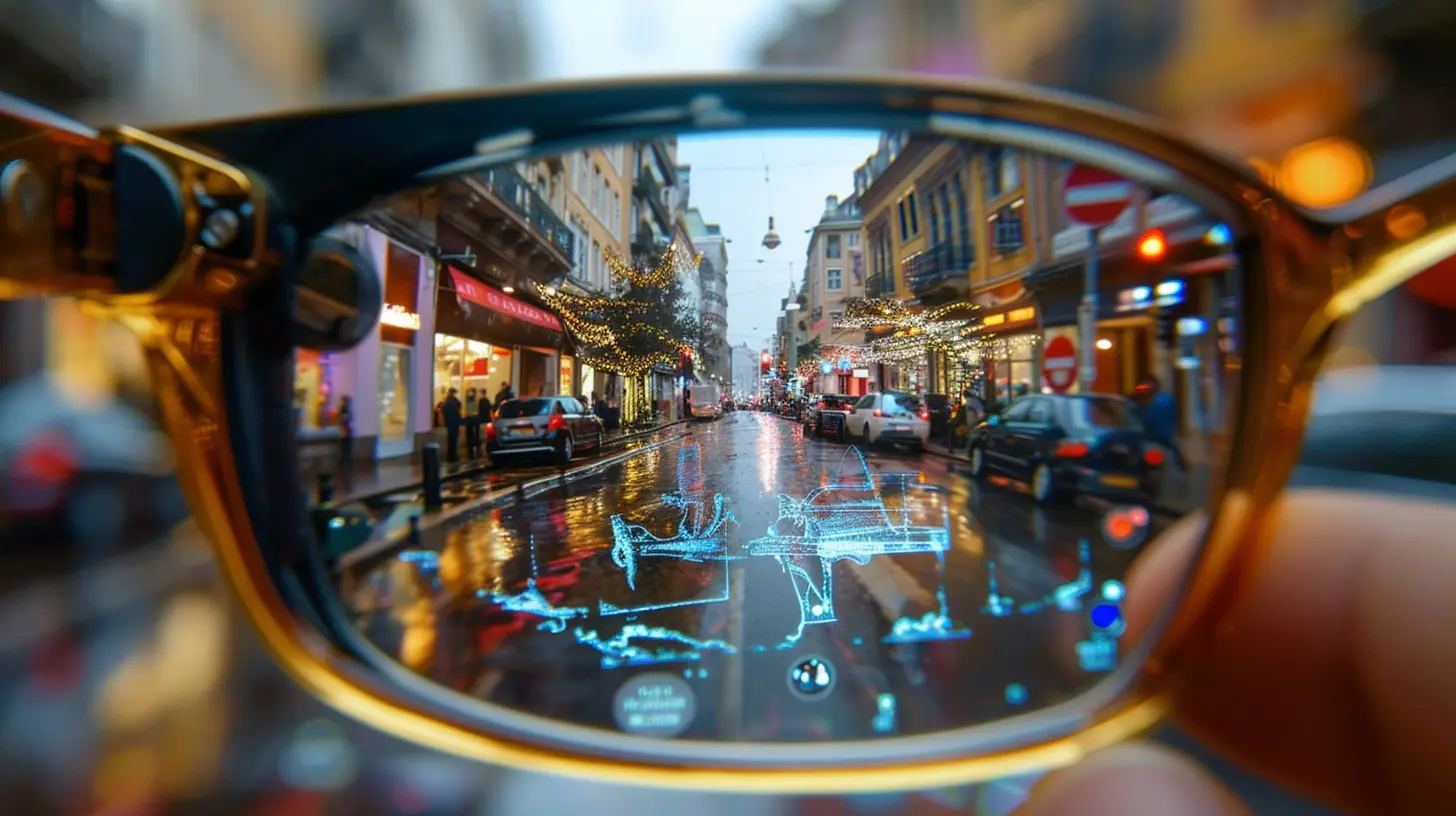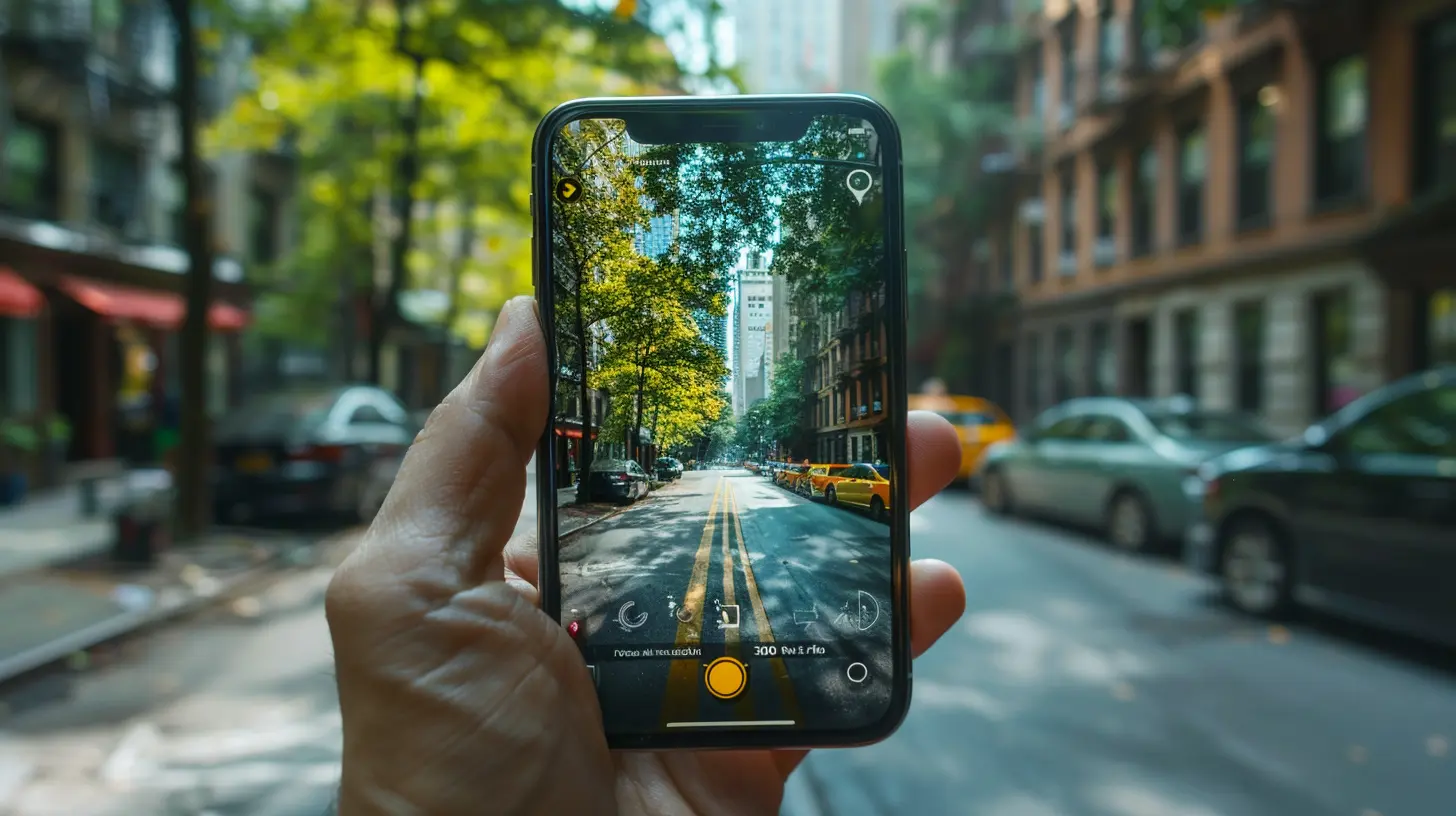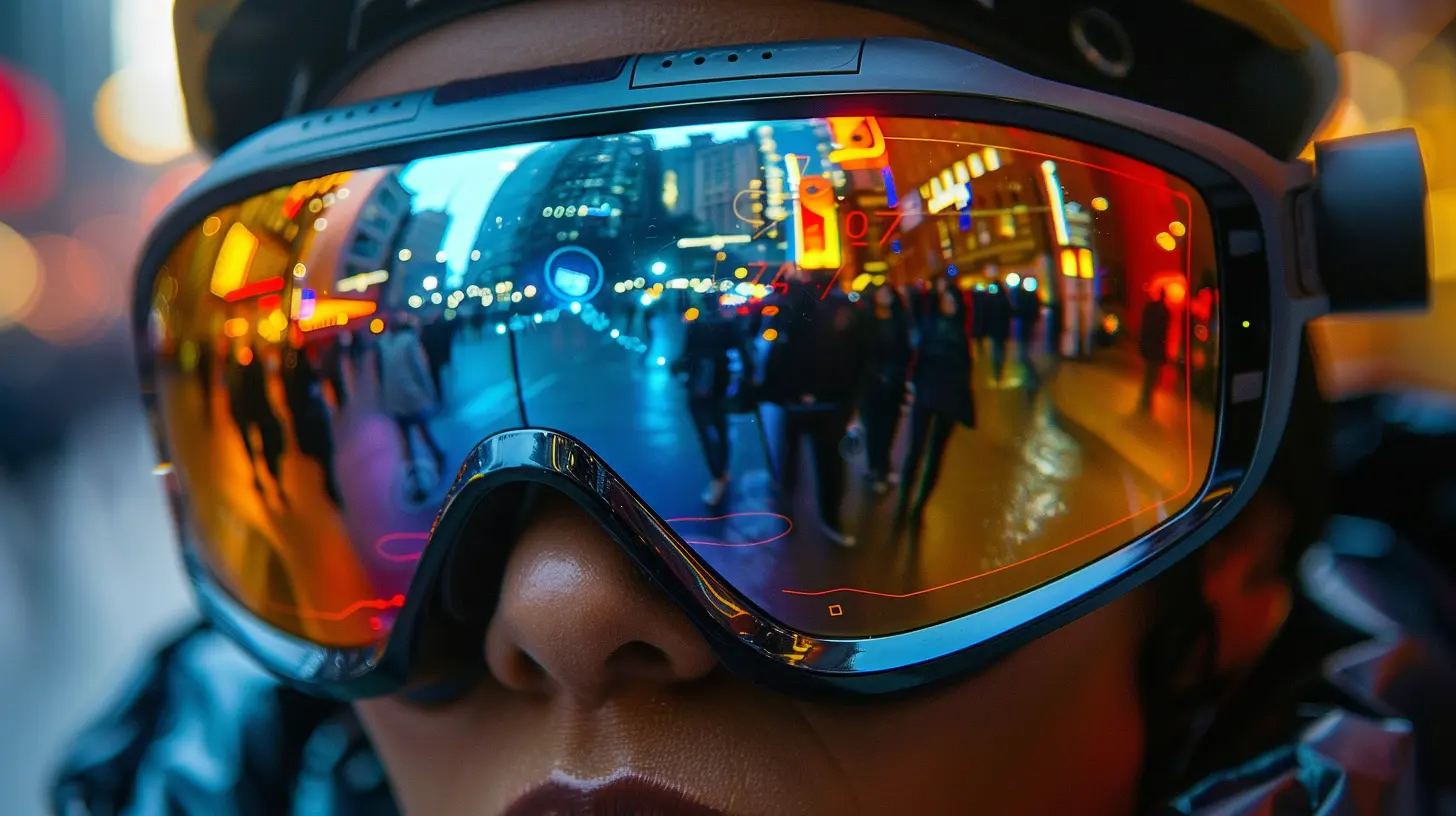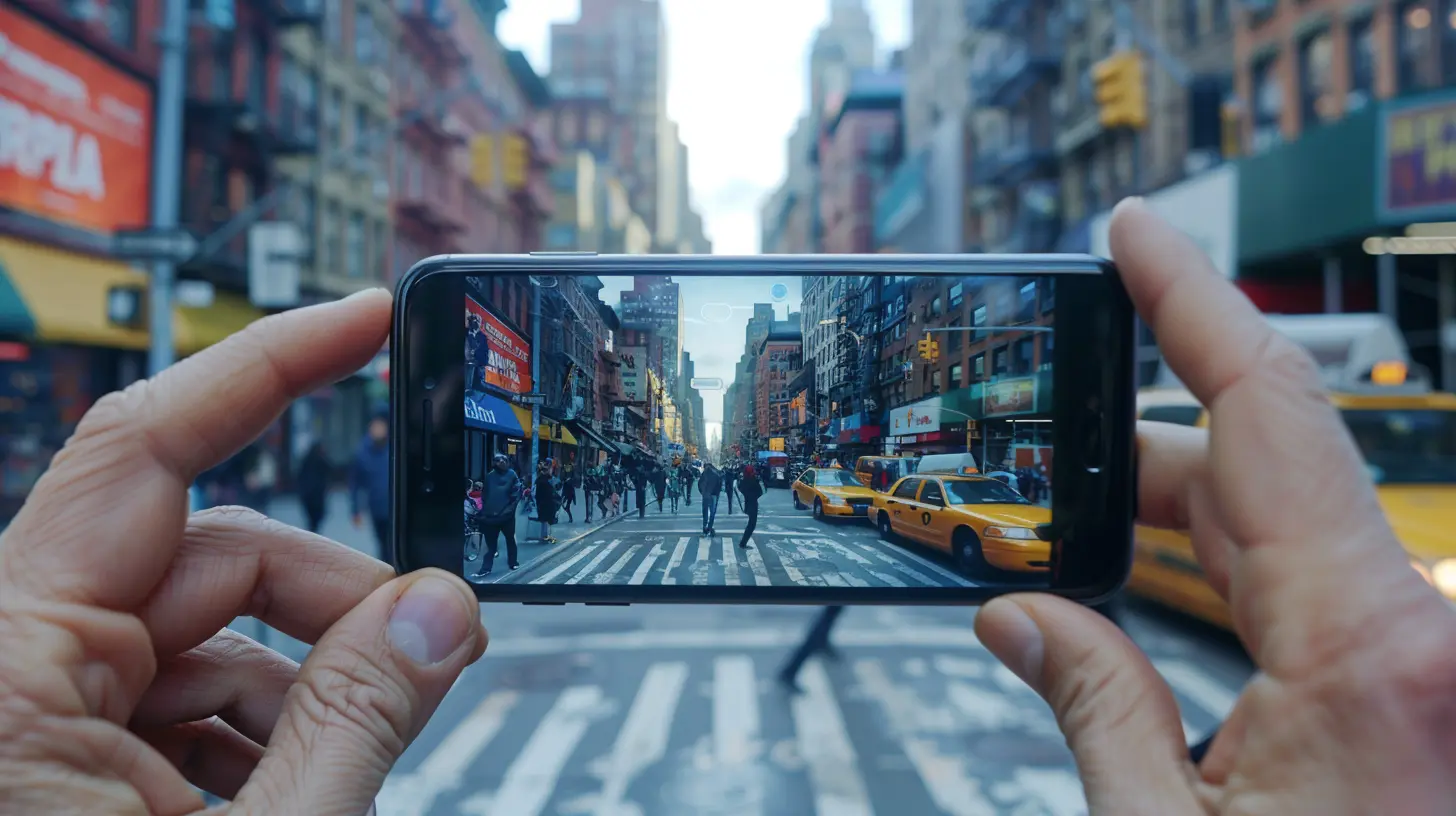Why Tech Startups Are Betting Big on Augmented Reality
29 September 2025
Technology is evolving at a breathtaking pace, and one of the most exciting frontiers right now is Augmented Reality (AR). Once a futuristic concept reserved for sci-fi movies, AR is now shaping industries, enhancing experiences, and opening doors to endless possibilities.
But why are tech startups, in particular, putting so much faith—and money—into AR? What makes this technology so irresistible to entrepreneurs looking to carve out the next big thing? Let’s dive deep into the reasons why AR is the gold rush of the tech world. 
The Growing Role of Augmented Reality in Tech
Before we get into why startups are betting big on AR, let’s understand what it actually is.Augmented Reality (AR) blends digital elements with the real world, creating an interactive experience. Unlike Virtual Reality (VR), which immerses users in a fully digital environment, AR enhances our reality by overlaying virtual objects, data, and visuals onto what we see in real life. Think Pokémon GO, Snapchat filters, or even AR glasses that display navigation directions in front of your eyes.
And here's the kicker—AR isn’t just a gimmick. It’s fundamentally changing the way we interact with the world around us. 
Why Startups See Gold in AR
Tech startups are known for chasing innovation, and AR is a game-changer for multiple reasons. Here’s why they’re all in:1. AR Is Still a Young Market with Immense Potential
Despite some big players like Apple, Google, and Meta investing heavily in AR, the industry is still in its early stages. That means there’s room for disruption. Startups that can craft groundbreaking AR applications have a massive opportunity to stake their claim before the market gets too crowded.2. Enhanced Customer Engagement Like Never Before
If there’s one thing businesses crave, it’s engagement. AR makes products and services more interactive, which naturally keeps users hooked. From virtual try-ons for fashion brands to AR-powered home interior previews, customers get a hands-on experience without leaving their couch.This level of engagement translates into higher conversions, increased brand loyalty, and, ultimately, more revenue—a dream scenario for any startup.
3. The Rise of Metaverse and Extended Reality (XR)
The metaverse is rapidly transforming how we interact, work, and socialize. AR is a key part of this ecosystem, bridging the digital and physical worlds in ways we couldn’t have imagined a decade ago.Tech startups are jumping in now because they know whoever crafts the best AR solutions today will be the backbone of tomorrow’s metaverse.
4. Cost-Effective Innovation with Faster Adoption
Unlike VR, which requires expensive headsets and extensive hardware, AR works on devices people already own—smartphones, tablets, and even modern browsers.For startups, this means:
- Lower hardware costs
- Faster adoption rates
- Wider audience reach
Startups don’t need to reinvent the wheel. They can integrate AR into existing platforms, making it a low-risk, high-reward investment.
5. AR Is Revolutionizing Multiple Industries
One of the biggest reasons startups are flocking to AR? It’s not just a one-industry wonder. From healthcare to education, AR has massive potential in several sectors, including:- Retail & E-Commerce: Virtual fitting rooms, AR furniture placement apps, interactive product demos.
- Healthcare: AR-guided surgeries, anatomy visualization, patient rehabilitation programs.
- Education & Training: Immersive learning, virtual field trips, real-world simulations.
- Real Estate: Virtual property tours, architectural visualization, interior design previews.
- Automotive: AR-powered dashboards, maintenance training, autonomous car navigation assistance.
For startups, this means endless opportunities to innovate and disrupt across different markets. 
Big Tech’s Push Is Creating More Opportunities for Startups
Let’s be honest—when tech giants like Apple, Meta, and Google put their weight behind something, you know it’s worth paying attention to.- Apple’s Vision Pro AR headset is set to redefine immersive experiences.
- Google’s ARCore lays the groundwork for AR applications with cutting-edge tracking and environment understanding.
- Meta (Facebook) is investing billions into AR because it sees it as the future of social interaction and business.
For startups, this big tech involvement is a blessing. Why? Because these companies are:
✔ Building the necessary infrastructure, making it easier for startups to develop AR applications.
✔ Driving consumer awareness and acceptance, increasing demand for AR solutions.
✔ Opening funding doors, as more investors recognize AR as the next big thing.
Startups that get in early can ride this wave rather than fight against it. 
Challenges Startups Face in the AR Space
Of course, it’s not all sunshine and rainbows. Like any emerging technology, AR comes with its own set of challenges.1. Hardware Limitations
While AR is accessible on smartphones, truly immersive experiences often require specialized glasses or headsets, which aren’t mainstream yet.2. High Development Costs
Advanced AR applications require significant R&D, making it difficult for bootstrapped startups to compete with well-funded giants.3. Market Readiness & Adoption
While AR adoption is rising, mass adoption is still a few years away. Startups must find ways to educate users and seamlessly integrate AR into daily life.4. Privacy & Ethical Concerns
Using AR means collecting and processing real-world data. This raises privacy, security, and ethical concerns that startups must address proactively.Despite these challenges, the opportunities far outweigh the risks, and startups that innovate and adapt will thrive in this space.
The Future: Where AR Is Headed
So, what’s next for AR?🔹 AR Glasses Will Become Mainstream: Instead of clunky headsets, lightweight AR glasses will become part of our daily tech arsenal.
🔹 Mixed Reality Will Dominate: The blend of Virtual Reality (VR) and Augmented Reality (AR)—known as Mixed Reality (MR)—will take immersive experiences to the next level.
🔹 AI and AR Will Merge: Artificial Intelligence (AI) will enhance AR applications, making them smarter, more adaptive, and personalized for each user.
🔹 Bigger Business Integrations: From remote work collaborations to AR in customer service, companies will leverage AR in ways we haven’t even imagined yet.
For tech startups, this means one thing: Now is the time to take action.
Final Thoughts: The Perfect Time for Startups to Dive Into AR
The AR revolution is just beginning, and tech startups have a front-row seat to shape its future.With increasing consumer demand, growing big-tech investments, and endless industry applications, startups that embrace AR early will set themselves apart from the competition.
Yes, challenges exist. But history has shown us that the biggest innovations come from those who take bold risks.
So, will AR be the startup gold rush of this decade? If the trends are anything to go by, the answer is a resounding yes.
all images in this post were generated using AI tools
Category:
Tech StartupsAuthor:

Michael Robinson
Discussion
rate this article
1 comments
Zara Foster
Augmented Reality is not just a trend; it’s the future of innovation! Tech startups embracing AR are paving the way for groundbreaking experiences that merge the digital and physical worlds. Let's celebrate this exciting leap forward and the endless possibilities it brings to creativity and connection. The future is bright!
September 29, 2025 at 12:13 PM

Michael Robinson
Absolutely! AR is indeed transforming industries and enhancing user experiences. The potential for innovation is limitless, and it's exciting to see how startups are leading the charge!


